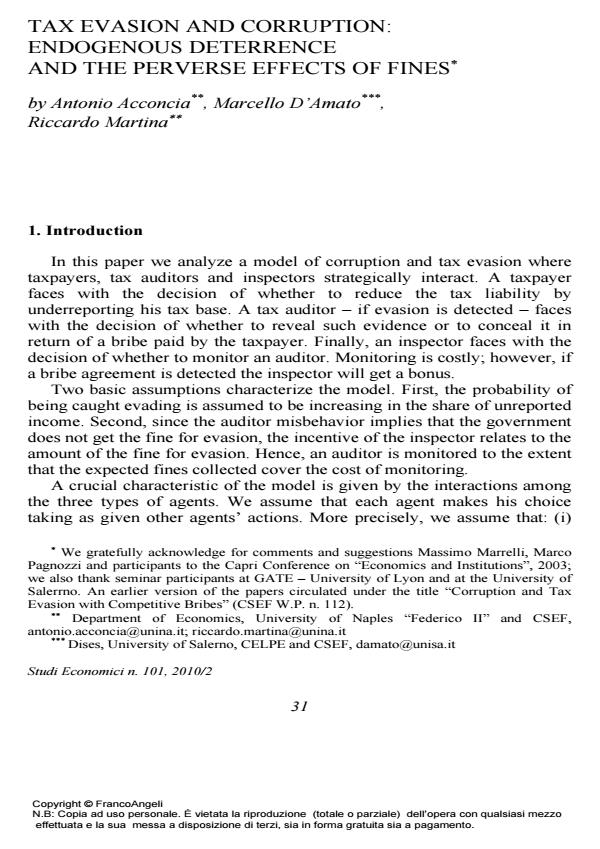Tax evasion and corruption: endogenous deterrence and the perverse effects of fines
Titolo Rivista STUDI ECONOMICI
Autori/Curatori Antonio Acconcia, Marcello D'Amato, Riccardo Martina
Anno di pubblicazione 2011 Fascicolo 2010/101
Lingua Inglese Numero pagine 23 P. 31-53 Dimensione file 616 KB
DOI 10.3280/STE2010-101002
Il DOI è il codice a barre della proprietà intellettuale: per saperne di più
clicca qui
Qui sotto puoi vedere in anteprima la prima pagina di questo articolo.
Se questo articolo ti interessa, lo puoi acquistare (e scaricare in formato pdf) seguendo le facili indicazioni per acquistare il download credit. Acquista Download Credits per scaricare questo Articolo in formato PDF

FrancoAngeli è membro della Publishers International Linking Association, Inc (PILA)associazione indipendente e non profit per facilitare (attraverso i servizi tecnologici implementati da CrossRef.org) l’accesso degli studiosi ai contenuti digitali nelle pubblicazioni professionali e scientifiche
We consider a simple economy where self interested taxpayers have incentives to evade taxes and to escape sanctions by bribing public officials in charge of tax collection. However, tax collectors may be monitored by second-level inspectors whose incentives to exert detection activity are endogenously determined. In this framework, it is shown that the effects of classical deterrence instruments, such as fines, may be perverse; in particular, larger fines for corruption directly reduce corruption and indirectly reduce incentives to monitor it determining, as an overall effect, an increase in the underlying offence, that is tax evasion. Nevertheless, on the normative side, we show that, even if the Government cannot commit to a given level of deterrence, the maximal fine principle still holds.
Parole chiave:Corruption, Tax Evasion, Deterrence, Maximal Fine
Jel codes:H2, K4
Antonio Acconcia, Marcello D'Amato, Riccardo Martina, Tax evasion and corruption: endogenous deterrence and the perverse effects of fines in "STUDI ECONOMICI " 101/2010, pp 31-53, DOI: 10.3280/STE2010-101002